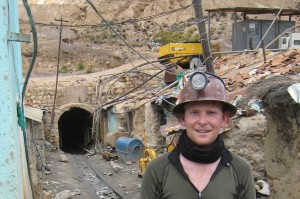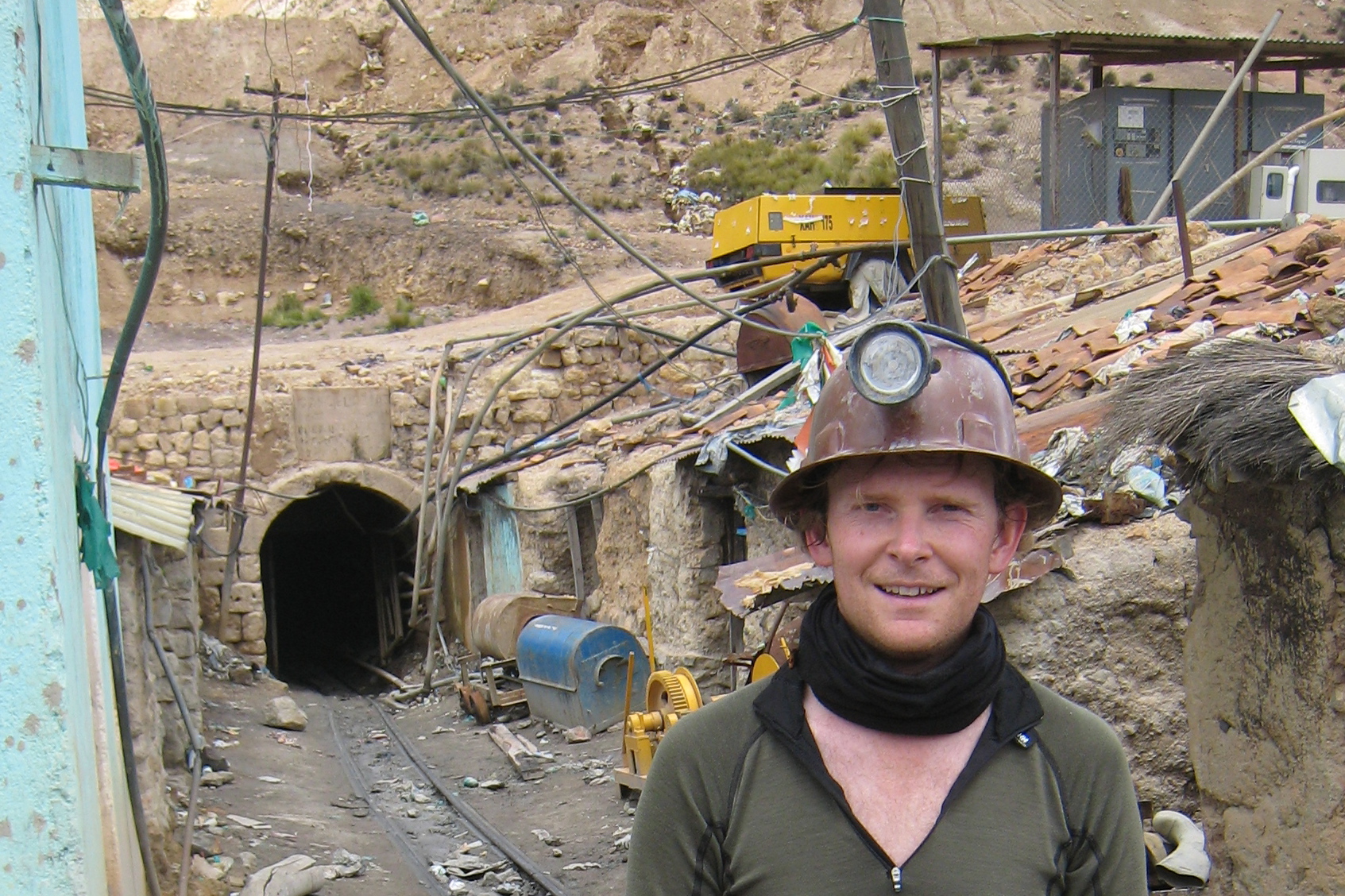I neglected this blog while travelling largely because we didn’t have a laptop, a decision I regret as per this previous post. Wordpress.org does have an iOS app but typing on a small touch screen feels like I’m pecking away like a chicken. The process of writing doesn’t have any flow for me using a smartphone. Plus I like to see the words on a decent size page after I’ve finished.
Anyway, back in England now. New year. New intensions.
First, a post-rationalisation on why travelling is both enjoyable and useful [Full disclosure: I love travelling]:
- I always learn new things, meet new people, and appreciate new perspectives. Benjamin Disraeli said that travel teaches toleration. Travelling in South America certainly provides ample opportunity for practicing tolerance; forced encounters with both locals and fellow backpackers with differing opinions and values, misunderstandings due to linguistic and cultural differences, questionable food hygiene, unreliable transport, and terrible, terrible toilets. There really is no alternative than to exercise patience and tolerance in these situations.
- Another reason I love travelling is the mountaineer’s refrain, “Because it’s out there.” I’m curious about the world, its people, its geography and its geology. And, despite David Attenborough’s excellent work, I need to experience that first hand and make up my own mind. Conrad Gesner puts it more robustly,
“Men dull in mind find no cause for wonder anywhere; they idly sit at home instead of going to see what is on view in the great theatre of the world.”
- G K Chesterton reminds us of our tendency to take the familiar for granted and how a period of absence can help us appreciate our own country anew:
The whole object of travel is not to set foot on foreign land; it is at last to set foot on one’s own country as a foreign land.
- My dissertation research into the current thinking on problem solving approaches and personality uncovered another reason. According to these three professors, people who have international experience or identify with more than one nationality are better problem solvers and display more creativity. Helpful if you’re trying to justify a proposed or recent (ahem) stint abroad. While causality is difficult to prove, living and travelling overseas clearly presents numerous novel problems to overcome that we do not encounter in everyday home life.
- Granted escapism, warm weather, re-charging, beautiful landscapes (new word: biophilia = love of life or living systems) are all factors but I believe the main reasons we seek new travel experiences are deeper than this.
- I believe it is because deep down we understand the importance of time and space to think and reflect. To wrestle with uncomfortable truths and regrets, successes and ambitions. To forgive ourselves for previous behaviour and to move on. To start some new habits. To grow.
Our personal development tutor at Henley gave us a parting hint, “Seek dialogue and uncertainty”. I doubt he specifically meant us to strike up conversations with drunk Bolivian silver miners but, as it happens, that experience provided a rich vein of material for reflection. Thank you travelling. Until next time…

“The World is a book, and those who do not travel read only a page.” ~ St. Augustine

Hi Rob, excellent reading, thanks for posting this. I enjoyed your travel looking at the pictures you so kindly posted. I am travelling in June and will share some photos and anything exciting that happens.
Thanks Kaushal. I’m looking forward to seeing and hearing about your travels too!
Great post Rob. I think the link between travelling or living abroad and better problem solving and/or creativity is down to the fact that you have a far greater understanding of situations. To actually ‘get’ someone else’s perspectives, motives and challenges is invaluable in then working with them or helping them effectively. I’d also say that being away from home for a prolonged period makes you realise how lucky we are in the UK. Yes we have our grumbles but in comparison to the vast majority of the world we have it easy. Very easy.
Thanks for the tip on helping justify stints abroad!
Cheers Tania.
Totally agree that we have it very easy. And we are accomplished at forgetting this. One recent memorable example: After driving past six empty petrol stations and then queuing for 30 minutes for fuel in Jujuy, Northern Argentina I asked the pump attendant how often this happened. Every week. That’s just life for them. It put the recent UK petrol ‘crisis’ into perspective for me!
Good to have you back and posting Rob, especially with such thought provoking material from your travels.
Your comments about those with broader international experiences making for more creative problem solvers brought to mind a recurring question. What differentiates the people who are prepared to go and seek new experiences and perspectives, whether through travel or other pursuits, from those who will quite happily remain in as narrow a comfort zone as possible? One to muse over a beer perhaps.
It’s great to be back.
Great question. I’m hoping to publish some new thinking on this..
In a nutshell: Research to date has focused on individual preferences in behaving and thinking. Measuring “Openness to experience” (Big5 personality), “Sensing-iNtuiting” scale in MBTI, Kirton’s “Adaptor-Innovator” scale and many others. I.e. some people just have it and some don’t.
However, my research shows the impact of individual preferences may be overstated and that it is individual ability that is key. I.e. with suitable training, experience and motivation limiting preferences can be overcome.
I think your comfort zone idea is key. When I was training to be a sailing instructor the first outing for beginners was always a joy-ride. Instructor at the helm, flat boat, not too fast. Calm and pleasant. Let people get used to new sensations and don’t scare them or they’ll close up.
That probably doesn’t answer your question though!? Musing over beer needed. Fascinating subject. What’s your take?
So two things sprang to mind off the back of your comments. Firstly, a piece of research I read about which considered why some people are better than others at dealing with adversity. Not sure they quite got to the bottom of the why? question. However, they do talk about flexibility and adaptability and indicate that these can be learned behaviours.
On a fairly unrelated tangent, I went to see the comedienne Sarah Millican a while ago. She talked about her upbringing during which being ultra safe and protecting yourself from any sort of harm or danger was key. And to this day, she cites herself as someone who plays safe in life and doesn’t like to try new things.
A long winded way of suggesting that people learn comfort zones rather than them being innate perhaps?
Hmmm… I bet there’s a nice diagram showing a model of the various factors influencing comfort zones that someone has researched somewhere. Sadly my Athens password is now defunct so I can’t check!
It’s amazing to me that a comedienne (hardly the most “safe” of professions) identifies with playing it safe. I imagine that her take on safe differs significantly from the typical given the financial insecurity, dealing with hecklers, subjective nature of success, etc in comedy. How many people would rather stand up in front of strangers and try to make them laugh (for money) than sky-dive or bungee jump, I wonder.
So learnt, inherited(?), prescribed by social norms. Yep, I think this fits with my own idea of where my comfort zones came from.
Then the individual differentiator may be recognising the impact of these zones, how they compare with others’, and the motivation to manage your comfort zones through exercises. Coincidentally, I just stumbled across these:
http://www.destination-innovation.com/articles/?p=550